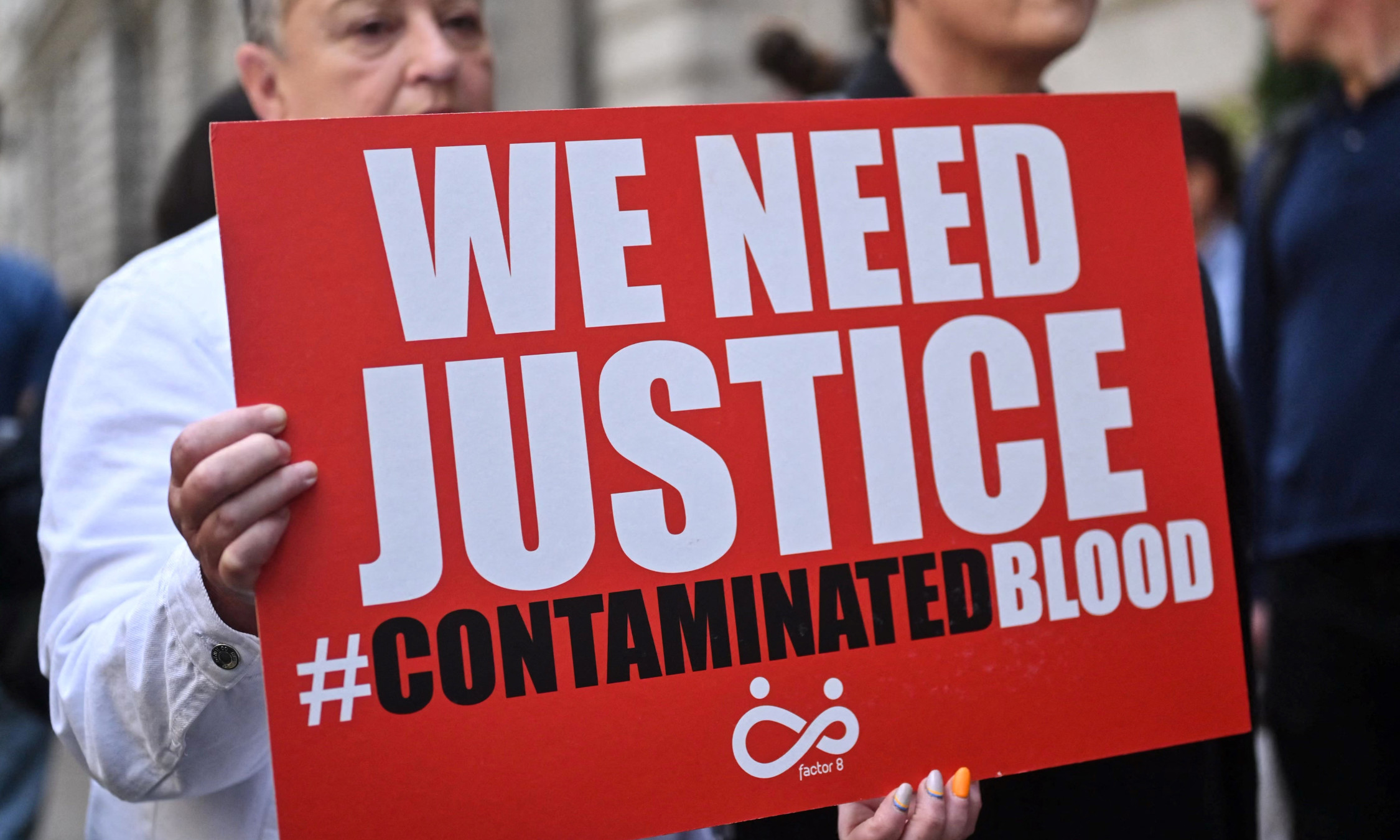The scandal of health and social workers being obliged to repurpose dustbin bags to serve as personal protective equipment (PPE) while being given penny lectures by government ministers advising them to make do with what they have got until the next cargo of facemasks gets off some Turkish runway, has rightly grabbed headlines and sparked a bewildered and angry response from the general public.
The mounting death toll of nurses and careworkers, now in excess of 80, undoubtedly accelerated by the failure of the government to deliver on its oft-repeated promises that it will “do whatever it takes” to deal successfully with Covid-19, is shaking some deep-rooted illusions about the state as the guardian of the people’s welfare.
And when ministers seek to excuse their inability to organise something so basic as the sourcing and distribution of facemasks by wailing that global demand is outstripping supply, they are merely confirming that, under the anarchy of capitalist commodity production, people’s most desperate needs are routinely subordinated to the profit motive.
Is a wealthy industrial country like Britain really incapable of manufacturing what is so urgently required? But whilst China and Cuba are able to mobilise workers and resources in such a way as to prioritise the welfare of the people, capitalism can only shrug and blame the bad market weather.
Farce of ‘social distancing’ on building sites
For other workers who cannot work from home and are not even getting the dubious benefit of being ‘furloughed’ (ie, taking a 20 percent pay cut whilst the government bails out their employers), working life is also becoming scary.
The government told construction workers that it’s okay to work on a building site so long as they stay 2m apart, betraying its ignorance of the realities of this kind of work. More recently, the guidance has shifted. It now says that when workers have to work closer to each other than 2m, they should “work side by side, or facing away from each other, rather than face to face”.
And when they can’t avoid face-to-face working, the last ditch advice is to “keep this to 15 minutes or less where possible”. (Watered-down Covid-19 construction guidance is unsafe warns Unite and launches hotline for worried workers, 22 April 2020)
What actually happens on building sites clearly is a mystery to the Whitehall mandarins who dream up all this advice.
A worker on one site recounted his experience. Up to 90 workers were employed there, all queueing for the one toilet. Our informant reported that the water supply was off for hours at a time, making a mockery of the “Now wash your hands” mantra.
At one point, the police arrived on the scene, complaining that people were having their sandwiches sitting too close together on a bench. The bosses called a meeting (with everybody spaced out at 2m) to warn people off the benches.
The police took an executive decision and turned all the benches upside down, then left: job done. Workers who complained about the continuing poor working conditions were threatened with the sack.
Bus drivers dying in covid hotspots as bosses refuse to protect them
Other workers feel that they take their lives in their hands when they go to work. Ten bus drivers have so far died of Covid-19, with the privatised bus companies apparently more fixated on preserving profits than on shielding their employees from harm.
The partner of one driver wrote a letter to the Guardian to draw attention to the measures some employees are obliged to take for the absence of the appropriate PPE. She wrote: “He takes safety into his own hands. He brings his own clingfilm, mask, hand sanitiser and a huge spray bottle of Dettol.
“He disinfects the cab before he gets in, sprays his mask, arranges his clingfilm and opens the window as wide as it will go.” (The clingfilm is to cover up the perforations in the perspex shield around the driver’s cab, otherwise useless at blocking the virus.) (Colleagues of bus drivers who died of coronavirus call for better protection by Henry McDonald and Gwyn Topham, The Guardian, 6 April 2020)
Meanwhile, a young driver in Liverpool who has been pushing his employers to provide proper protection and to enforce social distancing measures has been suspended for his pains, even as his friend and colleague, Reginald Halstead, a staunch trade unionist, lay dying of the virus.
For millions still employed – for supermarket workers, delivery drivers, posties, cleaners and teachers – working life is ever more stressful and precarious.
Virus or not, profit remains king, and the ‘mistakes’ that the government keeps making (dragging its feet over testing, cocking up the supply of PPE, issuing contradictory advice, etc) are all driven by the need to subordinate the welfare of the many to the profits of the few.
It is not enough for the TUC to be calling for a public inquiry into the PPE farce once the plague is over – an inquiry which would doubtless follow the same road to nowhere previously charted by Grenfell.
Rather, it is time to be telling workers the truth about the overproduction crisis of capitalism, how that crisis is sharpened and accelerated by the health emergency, how it will continue to unfold post-Covid and how workers will need to organise to resist capitalism and blaze the trail to the socialist future.
______________________________
See Cuban health ministry video on making a facemask at home.















